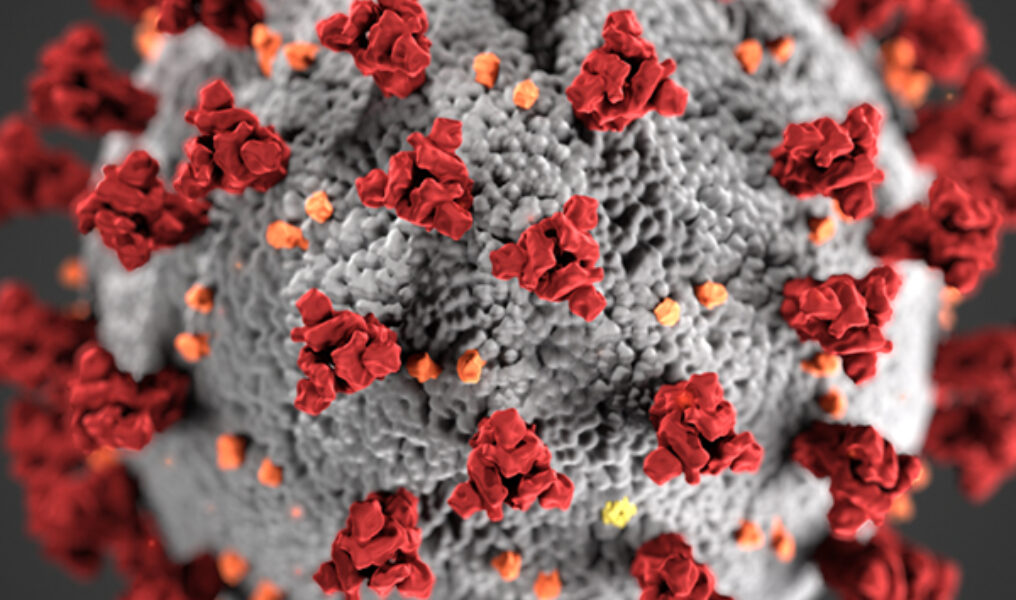I'll admit: as I write this, I am quite out of sorts. Last week, a friend of mine died due to complications from COVID-19. Another friend's mom passed of the virus. Yet a third friend of mine is presumed to have it, and I am most sincerely hoping that she will pull through.
This pandemic, as you can well imagine, is looming quite large in my psyche as I do my level best to keep both me and my partner safe, and I worry about so many others that I interact with on a day-to-day basis.
At the same time, I find myself wondering what could happen — perish the thought — I end up with COVID-19. How will I be treated by the medical professionals I encounter, and how will my treatment potentially differ because I am a trans woman?
It is quite common for transgender people to face discrimination in health care. While the Affordable Care Act specifically prohibits discrimination against transgender people's right to health care, it can and does still happen. We are refused treatment, we are treated as less than our peers and even in cases where our trans nature isn't a factor, health care workers will often blame our transgender status for any health malady we face.
Add to this that most transgender people are living in poverty, making health care even more difficult to acquire. Further still, many face discrimination based on race, or over stigmas towards sex workers.
Right now, we are seeing increased numbers of positive COVID-19 cases among communities of color. While I can hardly claim any special knowledge, I cannot help but assume that the virus isn't specifically choosing people by race, so much as those who aren't being treated fairly simply have less avenues towards adequate care.
The National Transgender Discrimination Survey: Report on Health and Health Care, released jointly by the National Gay and Lesbian Task Force and the National Center for Transgender Equality, found that one in five transgender or gender non-conforming people were refused health care, and 28 percent of those surveys faced harassment in medical settings.
Unsurprisingly, 28 percent also have reported delaying health care with sick or injured to avoid discrimination and disrespect from health care workers.
I have a list of minor maladies I would love to have a doctor check out some day. Various aches and pains, a wart or two, some dental work, and even a fairly unpleasant case of psoriasis. Yet I've made no appointments for any of this for months, even years, preferring to just deal with it all rather than face discrimination and harassment.
It's not a single bit healthy to put it off, especially as I get older and presumably require more care. Nevertheless, the expectation of poor treatment makes the alternative just a bit more appealing.
I'm clearly part of that 28 percent who is more than willing to delay matters — and yet, I know that this is not a good thing for me to do. All of this affects my quality of life, and it may shorten it.
In the case of COVID-19, however, we as a whole need to be testing and caring for all who may be affected. Aside from it being the humane and just thing to do, caring for all allows us to treat those who may be affected by the virus quicker and better.
All this said, the Trump Administration appears to disagree.
We all know that the executive branch has done just about everything wrong that they could. They delayed action for several critical weeks amid cries that the whole thing was a hoax that is "going to disappear" as soon as the weather warms up, then had more weeks of press briefings that were more about an oversized presidential ego than actually helping. Tests were not provided by the government, and valuable protective gear was reportedly held, seemingly at ransom, by a president expecting people to say nice things about him to receive it.
This would hardly be the sort of environment that transgender people could expect a fair shake, but the story got worse this April, as the administration announced plans to roll back a vital regulation in the Health Care Rights Law — part of the aforementioned Affordable Care Act.
Yes, the very part I mentioned earlier, that protects transgender people from discrimination in health care and health insurance coverage.
It is part of the long-running attempt to destroy the Affordable Care Act, tinged with more than a little anti-LGBTQ sentiment. This all fits into a longstanding pattern of trying to remove transgender, gender non-conforming and general LGBTQ protections within this administration.
This move would be abhorrent at any time, but to do this in the midst of a global pandemic simply adds to the insult: at a time when tens of thousands of Americans have died due to COVID-19, this administration moves to bar more vulnerable people from the care that they need.
That all this is happening, too, as the Supreme Court of the United States prepares to potentially gut anti-discrimination protections for transgender people only adds another layer to it all.
The whole thing is the work of monsters in ill-fitting human suits.
I find myself, in a time when death has become an altogether too common acquaintance, enraged at this. I suppose I should not be surprised by it all, but there's just an extra layer of cruelty here. There's no attempt to hide this: the cruelty of it all is front and center.
Amid a pandemic, we need to continue, ever still, to protect our rights from those who seek to destroy us. It is that stark, that simple.
Gwen Smith doesn't even eat an apple a day. You can find her at gwensmith.com.










